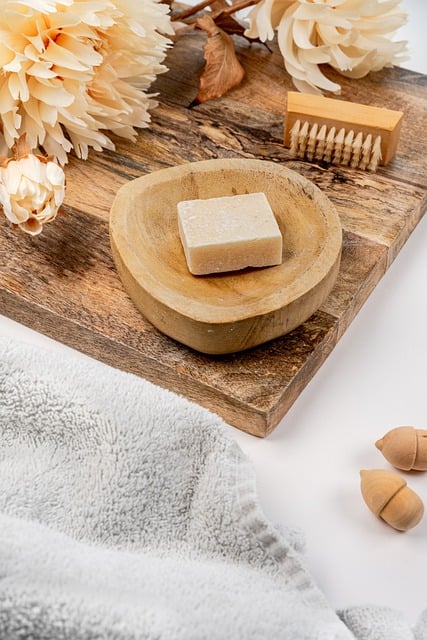Chronic inflammation causes various health issues and traditional treatments often have side effects. As a result, individuals are turning to non-invasive therapies like stem cell, PRP (Platelet-Rich Plasma), and peptide therapies, which offer natural, holistic approaches to inflammation management. These advanced pain relief treatments use the body's own healing mechanisms—stem cells for tissue regeneration, PRP therapy with growth factors, and peptides to modulate inflammatory pathways—providing effective, side-effect-free solutions for chronic inflammation.
Inflammation is a natural defense mechanism but can become harmful when chronic. This article explores non-invasive therapies that offer soothing effects on the body without the risks associated with traditional approaches. We delve into the world of regenerative medicines like stem cell, PRP (Platelet-Rich Plasma), and peptide therapy, showcasing their potential in reducing inflammation. Additionally, it highlights holistic strategies for managing chronic inflammation, providing a comprehensive guide to advanced pain relief treatments available today.
- Understanding Inflammation and Its Impact on the Body
- Exploring Non-Invasive Therapies for Natural Anti-Inflammatory Effects
- Stem Cell, PRP, and Peptide Therapy: Unlocking Regenerative Potential
- Holistic Approaches to Manage Chronic Inflammation and Achieve Advanced Pain Relief
Understanding Inflammation and Its Impact on the Body

Inflammation is a natural response from our bodies to protect us against injury, infection, or irritation. When we experience an injury, like a sprained ankle, or an infection, such as a common cold, our immune system triggers an inflammatory reaction. This process involves the release of chemicals that cause redness, swelling, heat, and pain at the affected site. While short-term inflammation is beneficial, chronic or prolonged inflammation can lead to significant health issues, including joint pain, arthritis, and even heart disease.
Chronic inflammation can disrupt the normal functioning of organs and systems, impacting overall well-being. Traditional treatments often rely on prescription medications that may offer temporary relief but can have side effects and don’t always address the underlying causes. This is where non-invasive therapies like stem cell therapy for inflammation, PRP (Platelet-Rich Plasma) therapy for inflammation, and peptide therapy for inflammation step in as promising alternatives. These advanced pain relief treatments and holistic inflammation management approaches aim to soothe inflammation naturally, promoting healing and regenerating damaged tissues without the side effects often associated with conventional anti-inflammatory medications.
Exploring Non-Invasive Therapies for Natural Anti-Inflammatory Effects

In today’s world, many individuals are seeking non-invasive therapies to soothe inflammation naturally, opting for advanced pain relief treatments that offer holistic inflammation management. Traditional methods often come with side effects and risks, prompting a shift towards alternative solutions. Among these, stem cell therapy for inflammation, PRP (platelet-rich plasma) therapy for inflammation, and peptide therapy for inflammation stand out as promising regenerative medicine options.
These advanced therapies harness the body’s natural healing mechanisms to combat inflammation without invasive procedures. For instance, stem cells can be used to regenerate damaged tissues and reduce inflammatory responses, while PRP therapy injects concentrated platelets rich in growth factors to promote tissue repair and reduce swelling. Peptide therapy, on the other hand, utilizes specific chains of amino acids to modulate inflammatory pathways at a cellular level. Such natural anti-inflammatory therapies offer a safer and more effective approach for managing chronic inflammation.
Stem Cell, PRP, and Peptide Therapy: Unlocking Regenerative Potential

Stem Cell, PRP (Platelet-Rich Plasma), and Peptide Therapy represent cutting-edge advancements in holistic inflammation management and advanced pain relief treatments. These non-invasive therapies harness the body’s inherent regenerative potential to soothe chronic inflammation naturally. Stem cell therapy for inflammation leverages the self-healing abilities of stem cells, which can transform into various specialized cell types, accelerating tissue repair and reducing inflammatory responses.
PRP therapy for inflammation utilizes a patient’s own blood to create a concentration of growth factors that promote healing and modulate the immune system. Peptide therapy for inflammation involves administering precise chains of amino acids designed to signal cellular responses, stimulating anti-inflammatory pathways and supporting overall regenerative medicine for inflammation. These advanced treatments offer promising alternatives to traditional anti-inflammatory therapies, providing targeted support without harmful side effects.
Holistic Approaches to Manage Chronic Inflammation and Achieve Advanced Pain Relief

Chronic inflammation can be a complex and persistent issue that demands a multifaceted approach. Holistic strategies offer an alternative to conventional treatments, focusing on natural remedies and lifestyle adjustments to manage this condition effectively. By combining various non-invasive therapies, individuals can achieve significant relief from pain associated with chronic inflammation.
Anti-inflammatory therapies, such as stem cell therapy, PRP (Platelet-Rich Plasma) therapy, and peptide therapy, have gained popularity in the field of regenerative medicine. These treatments stimulate the body’s natural healing processes, reducing inflammation and promoting tissue repair. For instance, stem cells possess the ability to differentiate into various cell types, contributing to the regeneration of damaged tissues and a decrease in inflammatory responses. Similarly, PRP therapy utilizes the patient’s own blood to accelerate healing, while peptide therapies target specific inflammatory pathways, offering advanced pain relief treatments for chronic conditions.
In conclusion, managing inflammation naturally through non-invasive therapies offers a promising path to achieving advanced pain relief and overall well-being. From stem cell, PRP, and peptide therapy to holistic approaches, these treatments unlock the body’s regenerative potential while providing effective anti-inflammatory effects. By exploring these natural alternatives, individuals can navigate a personalized journey towards soothing chronic inflammation and enhancing their quality of life.
